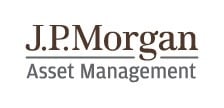The recent market volatility has shifted focus away from the upcoming presidential election (a little), but there’s still not a day that passes without at least a few hours of campaign coverage. Take the build-up to November as you will, but we think we can all agree that until the actual results are in, it’s more rhetoric and political posturing than anything else. A topic du jour for political posturing is…you guessed it… the economy! Both parties try to persuade voters that their policies are better for the economy and the markets, so we decided to take a closer look at how the economy and stock market have performed under different kinds of leadership. As you review some of the findings below, please keep in mind we do not favor one party over the other—our primary goal is to help our clients reach their long-term goals, and how we view politics personally should not (and does not) play a role in the investment plans we create and manage. Also, the findings below should not set any kind of expectation for future returns depending on who wins. If anything, you should view the findings below as little more than ‘interesting cocktail party facts!’ So…Republicans or Democrats – Who’s Better for the Economy? Two Princeton economists performed some comprehensive research on the matter, in a paper titled “Presidents and the U.S. Economy: An Econometric Exploration.” For all of the interesting discoveries they make in the process, perhaps the biggest takeaway is that political party doesn’t seem to matter all that much The economy and stocks tend to perform better when a Democrat is in power, but Messrs. Blinder and Watson make it clear in their paper that gaining an edge in economic and stock market performance is more arbitrary than policy related: “It appears that the Democratic edge stems mainly from more benign oil shocks, superior [productivity] performance, and perhaps greater defense spending and faster growth abroad.” The analysis looked at a 64-year period starting with President Harry Truman and ending with President Barack Obama, which includes seven complete Democratic terms and nine Republican ones. Some findings:
[+] Read More


















